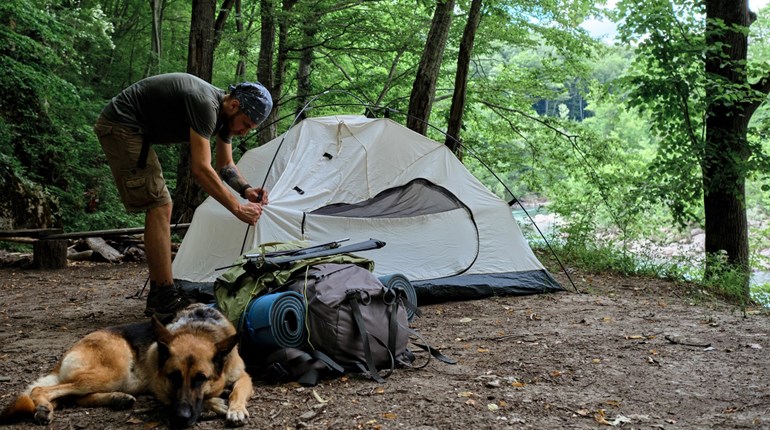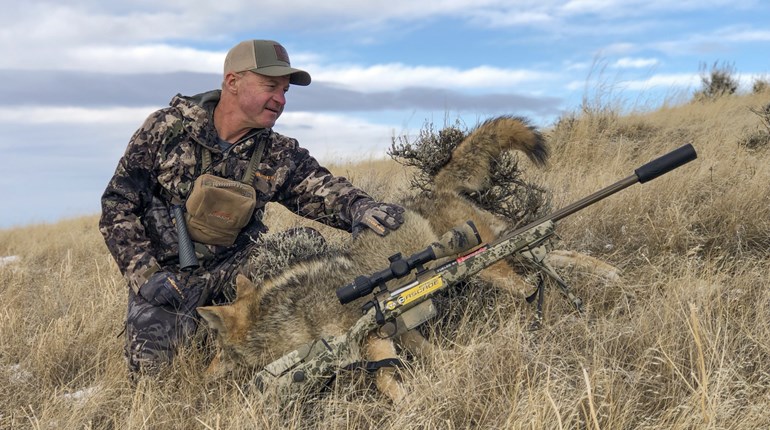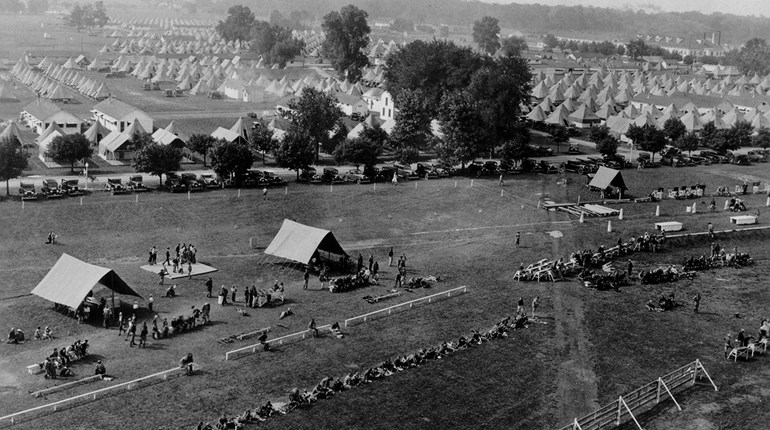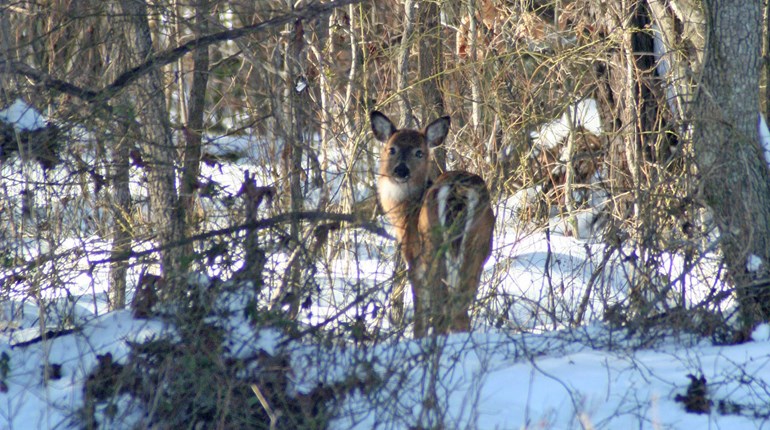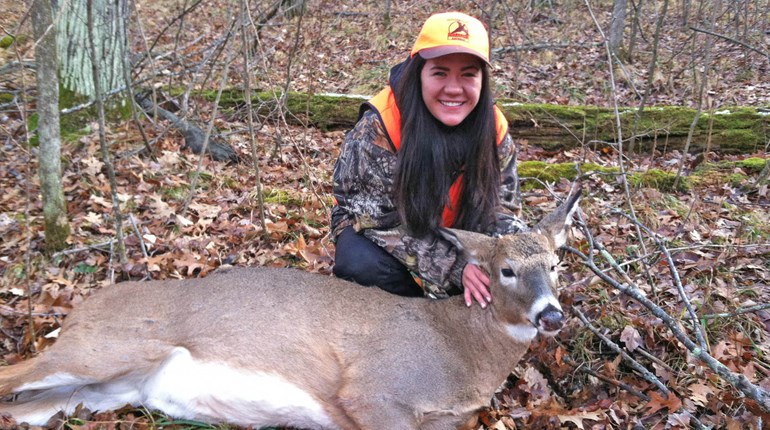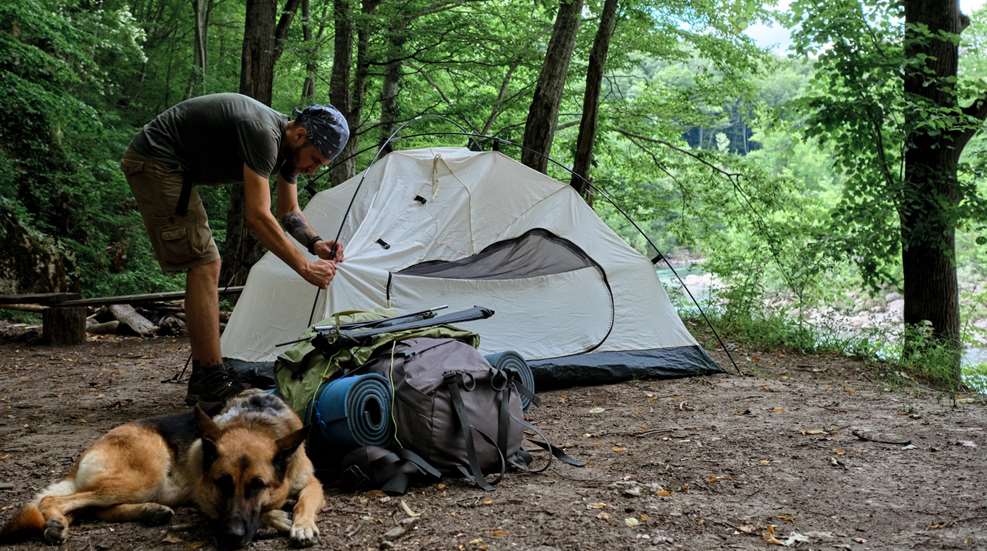
Whether you're on a camping trip, looking to expand your skillset, or staking your claim in the remote wilderness, establishing a defensive perimeter around your camp is an important skill. Knowing how to combine various deterrents, early warning signals, and physical barriers will go a long way in keeping unwanted visitors of both the two- and four-legged variety at bay. Read on as we take a look at the special considerations you should take when establishing a perimeter around your camp.
Choose the Right Location
Choosing the right location is more than picking a scenic spot; it’s about positioning yourself for optimal visibility, control, and safety. High ground offers cleaner drainage and better lines of sight, allowing you to spot approaching animals or people early. Avoid terrain features like thick brush, low valleys, or narrow chokepoints that limit your awareness and create natural hiding spots. A well-selected site becomes your first and most passive form of perimeter defense, working around the clock with zero gear required.
Pay attention to wind direction so the tempting scents of your dinner being cooked on the open fire drift away from your tent, reducing nighttime visits from curious critters. Scanning for animal tracks and game trails before you begin to set up helps you steer clear of busy wildlife corridors and settle in a quieter, less-traveled patch of woods.
Establish Physical Barriers
Establishing physical barriers designates a perimeter around your camp. Aside from clearly defining a border, it will also serve to direct the movement of anything that doesn’t necessarily belong within its walls. Natural elements such as fallen logs, thorny branches, and rock formations can serve as ready-made fencing that doesn’t require you to hammer a single nail or lash together smaller components. These features not only discourage foot traffic but channel it predictably, enhancing the effectiveness of your alarms and patrols. Even the smallest of obstacles will cause an animal to stop and assess their surroundings and the structure that lies within their path.
Deploy Tripwire Alarms
Tripwire alarms serve as your camp’s early warning system against unwanted guests. This type of alarm system is nice because it remains silent until activated, triggering immediate alerts when crossed. It's ideal for low-visibility zones and silent intrusions. Lightweight cord stretched between trees or stakes pounded into the ground can trigger bells or cans in a way that spooks unwanted company before they reach your shelter.
Use Electronic Alarms for Wildlife 
Electronic alarms tailored for wildlife offer a sleek, low-profile layer of protection. Modern motion sensors can detect movement from 30' away and activate sirens, strobes, or even alert your phone in many cases. These are very useful in bear country where scent, not curiosity, drives most bears to venture into camps. This type of system is particularly advantageous near game trails and in areas where you may stash food, gear, and other essential supplies.
Light and Sound Deterrents
Motion-activated LED floodlights paired with a seemingly randomized series of audible noises, such as a human voice, wind chimes, or predator calls, can signal to wildlife that your camp is far from a passive target. Choosing solar-powered modules with built-in timers or motion sensors keeps the pattern irregular and maintenance minimal. This layered sensory barrier not only deters curious critters but also lets you relax, knowing your camp is guarded without standing watch all night.
Maintain Cleanliness
Maintaining cleanliness is more than just staying clean and tidying up camp; it also significantly impacts scent control and reduces the risk of animal encounters. Be sure to keep cooking spaces, sleeping areas, and food storage separate from one another. Every wrapper, food scrap, and basin of dirty wash water can be a trail of breadcrumbs, both literally and figuratively, to trouble if not disposed of properly.
Monitor and Patrol
Monitoring and patrolling your camp transforms defense from passive to proactive. Even a slow walk around the perimeter before bed helps detect gaps, adjust alarm placement, and sharpen your senses. In groups, forming a watch rotation adds accountability by working as a team, building confidence with every pass around the tents. Solo campers benefit too, learning to spot animal tracks, shifting weather signs, or gear left out with minimal effort involved.
By layering natural barriers with simple defensive measures such as tripwires, physical barriers, scent‐blocking, and various light and sound deterrents, you will have established a camp that not only shelters you but also keeps you safe and secure. Establishing specific spots for cooking, stashing gear and food, as well as sleeping, will keep you one step ahead of curious critters or unexpected visitors. Whether you are braving the wilds alone or on an adventure with friends, equipping yourself with this knowledge lets you focus on tomorrow’s adventure, rather than unwanted surprises that may lie ahead.















